- Home
- Sarah Woodbury
Crossroads in Time (The After Cilmeri Series)
Crossroads in Time (The After Cilmeri Series) Read online
Book Three in the After Cilmeri Series
Crossroads in Time
by
Sarah Woodbury
SMASHWORDS EDITION
Copyright © 2012 by Sarah Woodbury
Cover image by Christine DeMaio-Rice at Flip City Books
http://flipcitybooks.com
Crossroads in Time
Three years have passed since the events chronicled in Prince of Time …
Anna has made a place for herself in thirteenth century Wales as a wife, mother, and healer. David has taken more of the kingdom’s rule on his shoulders, even as his relationship with Lili has caused friction with his father, King Llywelyn. The King wants his son to seek a political marriage that will benefit his country—and possibly place the crown of England on David’s head.
England and Wales have shared a border and an uneasy peace for three long years.
And that peace is about to be broken …
Crossroads in Time is a the third book in the After Cilmeri series. Other books include Winds of Time (a novella), and six novels: Daughter of Time, Footsteps in Time, Prince of Time, Children of Time, Exiles in Time, and Castaways in Time (releases September 24, 2013).
To my Carew
Books in the After Cilmeri Series:
Daughter of Time (prequel)
Footsteps in Time (Book One)
Winds of Time
Prince of Time (Book Two)
Crossroads in Time (Book Three)
Children of Time (Book Four)
Exiles in Time
Castaways in Time
The Gareth and Gwen Medieval Mysteries:
The Bard’s Daughter
The Good Knight
The Uninvited Guest
The Fourth Horseman
The Last Pendragon Saga:
The Last Pendragon
The Pendragon’s Quest
Other books by Sarah Woodbury:
Cold My Heart: A Novel of King Arthur
www.sarahwoodbury.com
A Brief Guide to Welsh Pronunciation
c a hard ‘c’ sound (Cadfael)
ch a non-English sound as in Scottish ‘ch’ in ‘loch’ (Fychan)
dd a buzzy ‘th’ sound, as in ‘there’ (Ddu; Gwynedd)
f as in ‘of’ (Cadfael)
ff as in ‘off’ (Gruffydd)
g a hard ‘g’ sound, as in ‘gas’ (Goronwy)
l as in ‘lamp’ (Llywelyn)
ll a breathy ‘thl’ sound that does not occur in English (Llywelyn)
rh a breathy mix between ‘r’ and ‘rh’ that does not occur in English (Rhys)
th a softer sound than for ‘dd,’ as in ‘thick’ (Arthur)
u a short ‘ih’ sound (Gruffydd), or a long ‘ee’ sound (Cymru—pronounced ‘kumree’)
w as a consonant, it’s an English ‘w’ (Llywelyn); as a vowel, an ‘oo’ sound (Bwlch)
y the only letter in which Welsh is not phonetic. It can be an ‘ih’ sound, as in ‘Gwyn,’ is often an ‘uh’ sound (Cymru), and at the end of the word is an ‘ee’ sound (thus, both Cymru—the modern word for Wales—and Cymry—the word for Wales in the Dark Ages—are pronounced ‘kumree’)
Cast of Characters
The Welsh
David (Dafydd)—Prince of Wales
Anna—David’s half-sister
Llywelyn—King of Wales, David’s father
Meg (Marged)—Queen of Wales, mother to David and Anna
Math—Anna’s husband; nephew to Llywelyn
Cadell – son of Anna and Math
Ieuan —Welsh knight, one of David’s men
Bronwen—American, married to Ieuan
Lili—Ieuan’s sister
Bevyn—Welsh knight
The English
Edward I (deceased)—King of England
Humphrey de Bohun—Earl of Hereford
William de Bohun—Humphrey’s son
Maud de Bohun—Humphrey’s wife
Hugh de Bohun—Humphrey’s son
Edmund Mortimer—Lord of the March
Gilbert de Clare—Lord of the March
Chapter 1
24 August 1288
After Midnight, near Dinas Bran
Anna
“Are you really asking my brother to ally himself with you?” Anna glared across the nave of Valle Crucis Abbey at Humphrey de Bohun. He stood before her, looking as arrogant and self-satisfied as ever, with one hand on the hilt of his nonexistent sword. Like David and Math, he had removed it before entering the building out of respect for the Church.
If Bohun tipped his nose any higher he’d be gazing at the ceiling. “And you are?” He spoke in Welsh—and far better than Anna might have expected from a Marcher lord.
David held out his hand and gestured Anna forward. “This is my sister, Princess Anna. Her question is a legitimate one.”
Bohun eyed her. “Yes. That is exactly what I’m suggesting. I offer him custody of my son as surety for our agreement.”
Anna wasn’t buying it—neither his words nor this agreement between England and Wales that Bohun claimed to want. Papa and David had already signed a treaty, three years ago at Shrewsbury, in the aftermath of an ill-conceived plot against Wales. Bohun and his fellow Norman barons had consented to trade their holdings in Wales for peace—and for Bohun himself, whom David had captured.
“All you’ve told us so far is that several of your fellow barons are plotting against us.” Anna was being more outspoken than was normal for her in the company of a man such as Bohun, but his smirk annoyed her so much that she found it impossible to keep silent. “Surely, this isn’t news? You’ve come a long way in secret to tell us something we already knew.”
“They plot against you and against me.”
“But why?” Anna said. “And even if what you say is true—and so far we have only your word for this—why should we care if some of your fellow barons threaten you?”
“You should care if it means war, young lady.”
“But the Treaty—” David said.
“Kirby and Vere don’t care about the Treaty!” Bohun threw out a hand in a gesture of exasperation and stabbed his finger to a point beyond the church wall. “Even as we speak, troops are massing at Bristol Castle in preparation for an assault on your southern coast. The barons seek to cross the Severn Estuary and take back the lands you took from them.”
Math, standing beside Anna, had stayed silent throughout their conversation, leaving Anna to express the indignation they all felt. Now he spoke: “Which barons? Kirby is a man of the church and Vere has been ill of late. Who strikes at us? You still haven’t said.”
And by the look on Bohun’s face, he didn’t want to. They waited, striving for patience. That Bohun wanted to speak to David in private, that he’d crossed the border into Wales under the cover of darkness with only a handful of men to protect him, meant that he thought the stakes were very high. At least for him.
“Bigod for one. He wants Chepstow Castle back. It was his pride and joy and he was loath to part with it three years ago, treaty or no treaty.”
His face intent, David closed the distance between them in two strides. He and Bohun now stood a foot apart. “Bigod just married Vere’s daughter, did he not?”
Bohun nodded. “Bigod is only one of a dozen whose eyes look covetously on Wales. Those southern lands are rich. They want them back.”
“We will see about that,” David said. “But even were Bigod to win back his lands in Wales, it shouldn’t affect your station as regent. It shouldn’t bring you here, to Llangollen, in the middle of the night.”
“Shouldn’t it?” Bohun said. “I
cannot win. If I turn a blind eye to Bigod’s violation of the Treaty, it calls into question my ability to act as regent. If I actively refuse support for Bigod’s endeavors, and yet he succeeds, it calls into question my station as regent. Two against one and I find myself in the topmost room in the Tower of London, all my lands forfeit, and no say in the matter.”
“The Archbishop of Canterbury himself put his signature to our treaty,” David said. “What does he say about this invasion?”
Bohun shrugged. “Peckham doesn’t know.”
“Why didn’t you go to him instead of to us?” Anna said.
“I feared he wouldn’t believe me,” Bohun said, “that he wouldn’t want to believe me.”
Which was a remarkable admission, coming from Bohun. “And yet, you thought we would?” Anna said.
Math clasped Anna’s hand in his and squeezed. It wasn’t so much a warning, as a suggestion that she not press so hard. She subsided as David took up the argument. “So, these barons hope to take a piece out of Wales before anyone is aware of what they are doing, at which point Peckham will accept the dissolution of the Treaty and Bigod supplants you as regent.”
Even as Bohun nodded again, David broke away from him, swinging around to gaze at Math and Anna. For this secret meeting with Bohun, he’d taken care to look nothing like the prince he was. His tousled brown hair and oft-patched breeches belonged to a man a dozen stages further down the social ladder. He wore unpolished boots and an unobtrusive brown cloak and shirt to hide his mail armor.
Even the sheen worn into the leather of his bracers, and the glint of finely worked metal in the handle of his belt knife, spoke of a once-trusted but now down-on-his-luck man-at-arms. Only the blue stone broach at his throat that secured his cloak and exactly matched his eyes—a gift from Ieuan’s sister, Lili—belied the image he was affecting.
The role Lili played in his life was something Anna hadn’t yet asked him. Anna hoped he might have mentioned her without a prompt. He’d had the chance. Before riding to meet Bohun at the Abbey, they’d eaten dinner at Dinas Bran and sparred together afterwards, which would sometimes get him talking.
Anna kept up with her katas, but didn’t have anyone with whom to spar other than her brother. While David practiced nearly every day, and had incorporated his knowledge of karate into the medieval martial art of sword fighting, Anna, as a woman, had to work harder for the opportunity to maintain her skills. Frustratingly, none of Math’s men would even consider fighting her.
“You do have a third choice.” David’s eyes flicked from Anna upward, to the rose window at the western peak of the church. Since it was after midnight, it lay in shadow. With the moon to the east, only stars shone through it to light their meeting. “You could counter their treachery merely by supporting their efforts. Or by informing the Archbishop. Yet you do not. You come to me.” David turned back to Bohun. “Why?”
“I choose the greater risk for the greater reward,” Bohun said.
Pause.
“I see,” David said.
A coldness settled in Anna’s belly as she saw too.
“If I defeat Bigod for you, exposing his machinations with Vere and Kirby for all to see, it will leave you as sole regent, with control of England to yourself.” David allowed himself a bark of a laugh. “You have a fine mind for devious plotting, sir.”
Bohun spread his hands wide. “The young Edward is ill with smallpox. The disease has swept like the plague it is through London. He is not expected to survive.”
And then everyone in the church understood the real reason Bohun had come to Wales.
Abbot Peter, who’d been standing by as a neutral party without inserting himself into their discussion, was the first to blurt out what Anna was thinking. “You hope to place yourself on the throne?”
Bohun glanced at him, a smile twisting at the corner of his mouth. “Not me. My son. His name is Humphrey, after me, though we call him William.” Bohun gestured to the boy he’d brought with him, as surety for their agreement, and William stepped into the light at his father’s signal. He was a well set up lad, with dark blonde hair and brown eyes that gazed calmly out of his cherubic face.
“He has no royal blood,” David said.
“As part of my agreement to take the regency three years ago,” Bohun said, “we engaged him to Joan, King Edward’s daughter. The wedding date is set for eight weeks from now, when he reaches the age of thirteen. It is through her that he will claim the throne.”
Internally, Anna shook her head. No wonder David had left Papa frustrated these last two years. William stood before them, unquestioningly accepting that he had no say in his choice of wife, because marriage was about political alliance, not love. Papa couldn’t get his head around the fact that David refused to accept such an alliance, no matter how high it raised him. Papa would have married David to Joan, and through her, have him gain the throne of England.
“Edward had other daughters.” It was the Abbot again. “Eleanor takes precedence as the eldest.”
“Eleanor is engaged to Alfonso of Aragon,” Bohun said. “That is not a contract that is in our best interests to break.”
“Besides which, England will never accept Alfonso as king, no matter what the Spanish might hope,” Math said.
“My son is also a direct descendant of King David of Scotland,” Bohun said.
David laughed genuinely now. “I’m sure the Scots will be very glad to hear it. When the time comes, William can claim the Scottish throne too, is that it?”
Bohun flashed a wicked grin, appreciating David’s observation. “We need each other, my lord,” Bohun said.
“And what is to prevent you from stabbing us in the back while our attention is elsewhere?” Math said. “Perhaps Bigod attacks from the south, distracting our attention and leaving you to regain your lands in Powys?”
Bohun nodded. “I predicted your concerns. And that is why I have brought you my son.”
The more they listened to Humphrey, the more Anna became convinced he wasn’t telling the whole truth. Again, she couldn’t keep silent. “Is that really why you’re giving him to us?”
Bohun’s eyes narrowed. “Of course.”
“He is your son,” Anna said. “Have you heard whispers of a threat against his life? Do you fear that a powerful baron has gotten wind of your plans for England? Perhaps this meeting is not as secret as we all might hope.”
David’s lips quirked in a half-smile. “Tell us, my lord. We can’t make a decision if you are not frank with us.”
Bohun contemplated Anna, his gaze steady. “You are as beautiful and perceptive as Morgana must have been. Are you a healer as she was?”
Bleh. The legend again. Bohun’s tone was mild, but his question was a serious one. He really wanted to know. This King Arthur thing had gotten way out of hand. The legend followed David everywhere. Anna understood the reason for it, but she hated it just the same. He was David. And she was no Morgana, especially if the label carried with it the stain of witchcraft. It was difficult enough for her, her mother, and Bronwen to function in the Middle Ages without having that fear hanging over their heads.
Anna glanced at David, who’d stilled his expression. They’d both watched with trepidation as the legend had grown. To the people of the thirteenth century, King Arthur was a real person, a war leader who led his people through many battles to victory against the Saxons and who would return in their hour of need. The Welsh knew he was real; their ancient stories and songs told them so, even if nobody had ever written them down and they hadn’t survived to the twenty-first century.
“I am a healer, but …” Anna stopped. For the first time, she found herself not wanting to admit to it. Up until now, she’d always been proud to be a healer, but would confessing it to Bohun confirm all his preconceptions?
Yes.
Bohun’s face took on a look of satisfaction. His chin firmed, jutting forward at Anna. “It is to you, also, that I entrust my son.”
&nb
sp; “My son is three years old,” Anna said, her thoughts flying to Cadell, asleep in their castle with a maidservant to watch over him, “and I lost a second son, just six months ago. I know what it is you are giving us.”
“My life.” Bohun bowed towards David. “My lord, Arthur.”
“Others have chosen that name for me,” David said. “My name is Dafydd, son of Llywelyn, the King of Wales.”
Bohun waved his hand dismissively. “It matters not. If I leave my son with you, do you give me your word that you will keep him safe, as you keep yourself?”
“More so than I keep myself,” David said. “As Arthur would have … though I have not agreed to your plan.”
Bohun smiled, confirmed in his opinion and assuming he’d already convinced them, despite David’s denial. Yet he’d still neglected to say from whom he was hiding William. The baron must be powerful indeed for Bohun not to want to speak his name until he had to.
The door behind them swung open and banged against the wall. Owain, David’s new captain, bounded into the church. “My lords! Someone comes!”
Math, David, and Anna spun around to look through the open doors which framed the road that led west from the church. A lone rider pounded towards them along it. At a nod from David, Math trotted to where Owain stood in the entrance.
The previous summer, Owain had replaced the former leader of David’s teulu, Bevyn, who’d retired to lands on Anglesey, protesting loudly all the while that he wasn’t old, not even forty. And yet, the median age of death for men in the thirteenth century was forty-eight. Anna didn’t know if her mother had actually told Bevyn that, but when Anna had seen him four months ago, he had married a girl fifteen years younger than he, who doted on him and was pregnant with his first child. Bevyn had confessed that he hadn’t imagined such happiness was possible for him.

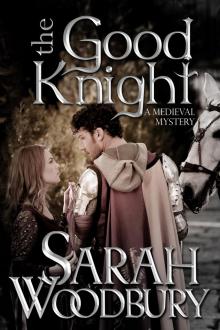 The Good Knight
The Good Knight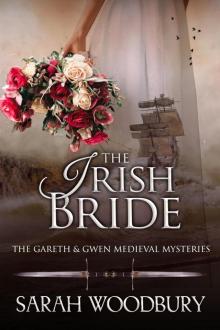 The Irish Bride
The Irish Bride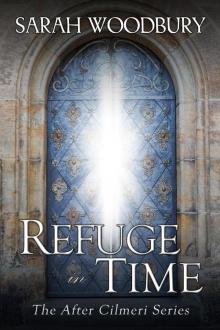 Refuge in Time
Refuge in Time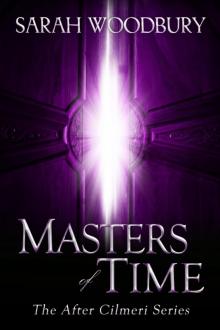 Masters of Time
Masters of Time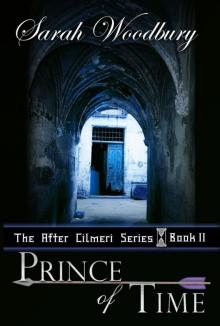 Prince of Time (Book Two in the After Cilmeri series)
Prince of Time (Book Two in the After Cilmeri series)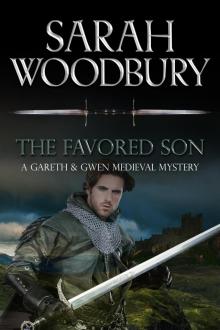 The Favored Son
The Favored Son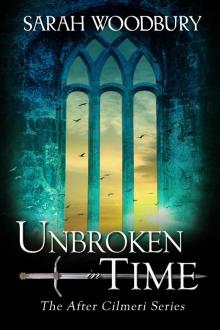 Unbroken in Time
Unbroken in Time![[The Lion of Wales 01.0] Cold My Heart Read online](http://i1.bookreadfree.com/i/03/22/the_lion_of_wales_01_0_cold_my_heart_preview.jpg) [The Lion of Wales 01.0] Cold My Heart
[The Lion of Wales 01.0] Cold My Heart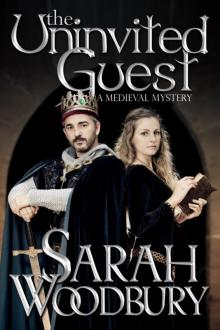 The Uninvited Guest
The Uninvited Guest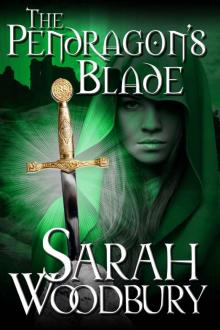 The Pendragon's Blade (The Last Pendragon Saga Book 2)
The Pendragon's Blade (The Last Pendragon Saga Book 2)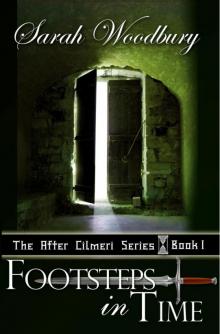 Footsteps in Time
Footsteps in Time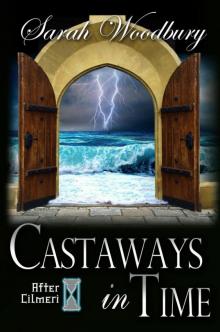 Castaways in Time (The After Cilmeri Series)
Castaways in Time (The After Cilmeri Series) Winds of Time
Winds of Time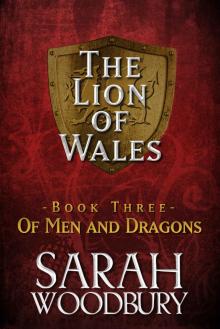 Of Men and Dragons (The Lion of Wales Book 3)
Of Men and Dragons (The Lion of Wales Book 3)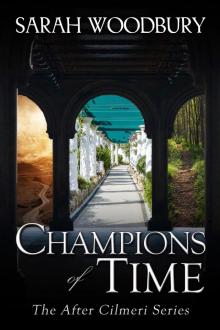 Champions of Time
Champions of Time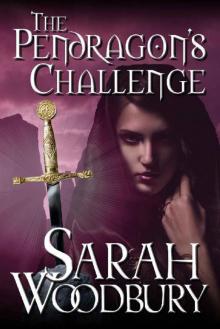 The Pendragon's Challenge (The Last Pendragon Saga Book 7)
The Pendragon's Challenge (The Last Pendragon Saga Book 7)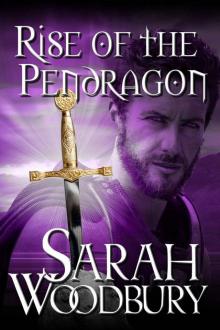 Rise of the Pendragon (The Last Pendragon Saga Book 6)
Rise of the Pendragon (The Last Pendragon Saga Book 6)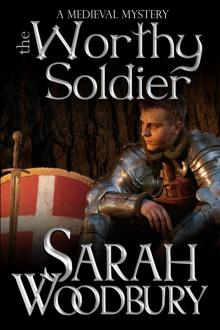 The Worthy Soldier
The Worthy Soldier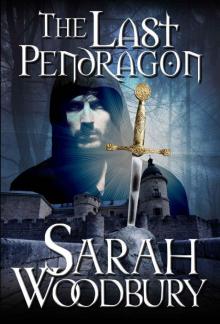 The Last Pendragon (The Last Pendragon Saga Book 1)
The Last Pendragon (The Last Pendragon Saga Book 1)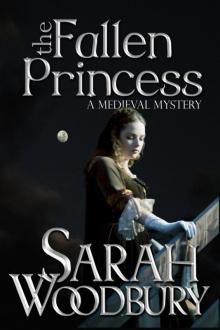 The Fallen Princess
The Fallen Princess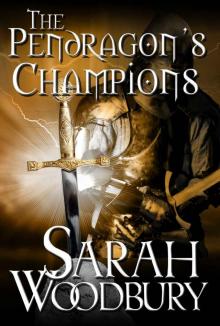 The Pendragon's Champions (The Last Pendragon Saga Book 5)
The Pendragon's Champions (The Last Pendragon Saga Book 5)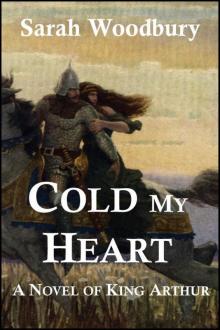 Cold My Heart: A Novel of King Arthur
Cold My Heart: A Novel of King Arthur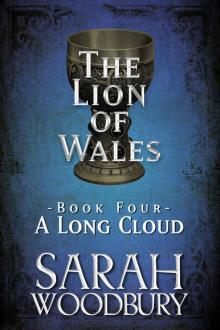 A Long Cloud (The Lion of Wales Book 4)
A Long Cloud (The Lion of Wales Book 4)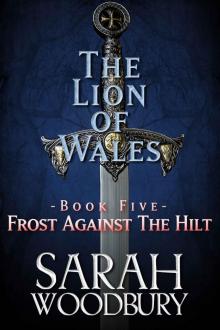 Frost Against the Hilt (The Lion of Wales Book 5)
Frost Against the Hilt (The Lion of Wales Book 5)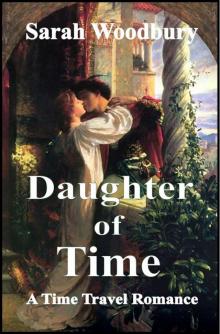 Daughter of Time: A Time Travel Romance
Daughter of Time: A Time Travel Romance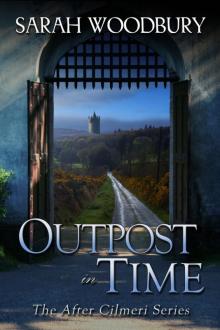 Outpost in Time
Outpost in Time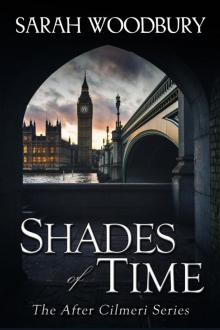 Shades of Time kobo
Shades of Time kobo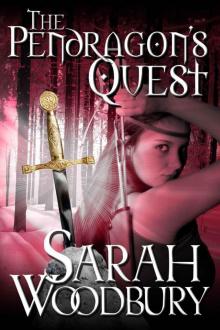 The Pendragon's Quest (The Last Pendragon Saga Book 4)
The Pendragon's Quest (The Last Pendragon Saga Book 4)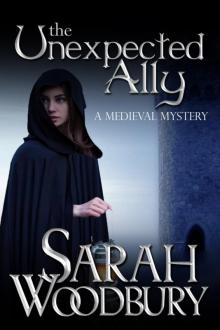 The Unexpected Ally
The Unexpected Ally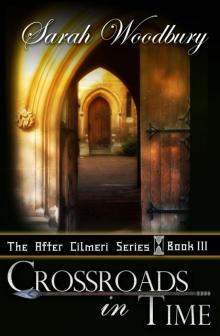 Crossroads in Time (The After Cilmeri Series)
Crossroads in Time (The After Cilmeri Series)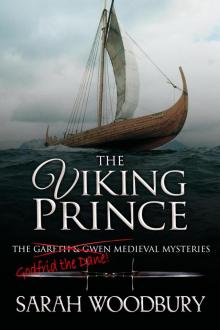 The Viking Prince
The Viking Prince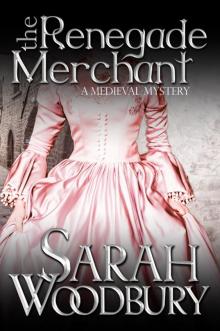 The Renegade Merchant
The Renegade Merchant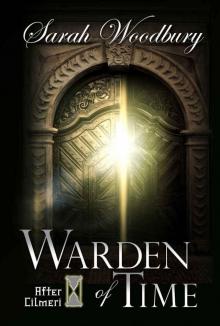 Warden of Time (The After Cilmeri Series Book 8)
Warden of Time (The After Cilmeri Series Book 8)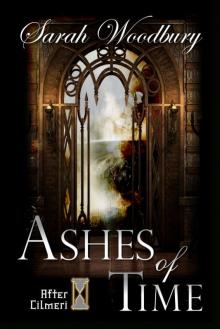 Ashes of Time (The After Cilmeri Series)
Ashes of Time (The After Cilmeri Series)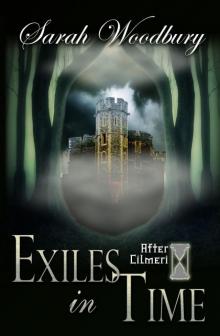 Exiles in Time (The After Cilmeri Series)
Exiles in Time (The After Cilmeri Series)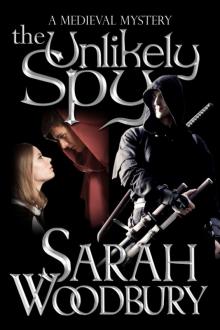 The Unlikely Spy
The Unlikely Spy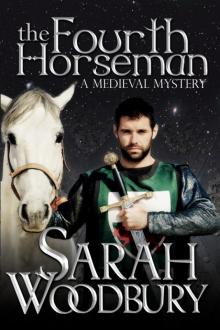 The Fourth Horseman
The Fourth Horseman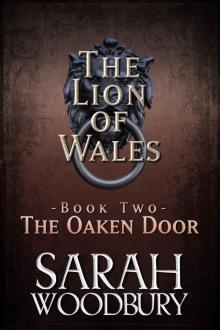 The Oaken Door (The Lion of Wales Book 2)
The Oaken Door (The Lion of Wales Book 2)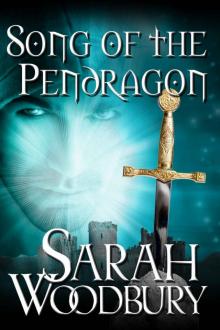 Song of the Pendragon (The Last Pendragon Saga Book 3)
Song of the Pendragon (The Last Pendragon Saga Book 3)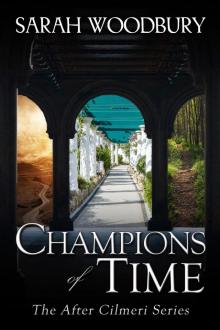 Champions of Time (The After Cilmeri Series, #13)
Champions of Time (The After Cilmeri Series, #13)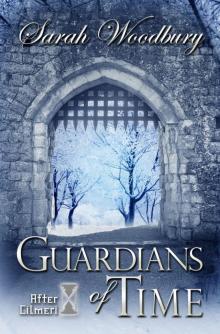 Guardians of Time
Guardians of Time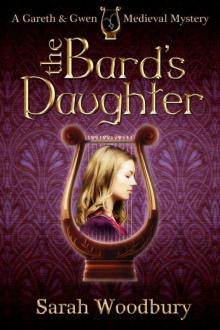 The Bard's Daughter (A Gareth and Gwen Medieval Mystery)
The Bard's Daughter (A Gareth and Gwen Medieval Mystery)